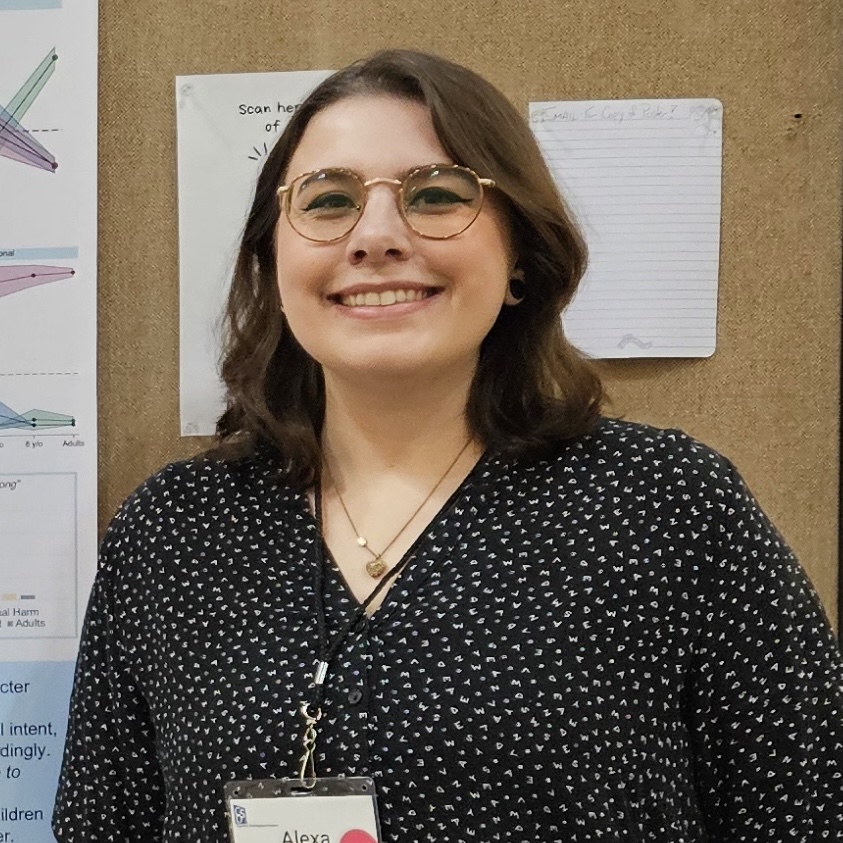GSTA Announcements:
The GSTA celebrates their successful workshop: "Voices in Teaching: Highlighting Pathways to a Career in Teaching Psychology" that had 135 sign ups and 60+ live attendees. We are happy to share links for the slidedeck and video recording from the workshop for those who could not attend.
We extend our gratitude to the panelists for offering their time: Drs. Jessica Dere, Lauren Girouard, Geremy Grant, Julia Kim-Cohen, Amie Muldong, and Amanda Woodward. Stay tuned for our next workshop in the fall on "AI in teaching; ways to use it as a grad student instructor".
GSTA Corners: Beyond AI: Our Go-To Teaching Tech
In a world increasingly shaped by AI, we’re taking a step back to highlight the non-AI tools that still make a big difference in the classroom. From learning management systems to time-saving extensions and creative presentation platforms, the GSTA shares their favorite tech tools that support effective and engaging teaching—no algorithms required.

Chair: Alexa Sacchi (they/them), University of Toronto - St.George:
I have a few favorite tools I rely on in the classroom! Google Workspace—especially Docs, Sheets, and Slides—is my go-to. It makes collaboration seamless and real-time editing a breeze for both students, instructors, and TAs.
For live polls, I love using Mentimeter. The anonymity encourages honest input, and the instant results keep students engaged.
When it comes to staying organized, I’ve tried Notion, Trello, Monday, and Asana—but I always come back to the classics: Google Calendar and Google Sheets. And, of course, I still use the occasional Stickies, Notes, or Word doc for quick thoughts.
Now for my first hot take, I really dislike SharePoint. While it’s handy to open files in each Microsoft platform, I find it glitchy and slow to sync.
My second hot take is a bit of a cheat, but I do use ChatGPT to help with my R code. Not exactly a teaching tool, but definitely part of my teaching toolkit!

Associate Chair: Ashmita Mazumder (she/her), University of Toronto - Scarborough:
As a teaching assistant, one of my favorite technological tools is Mentimeter. I love how it makes lectures and tutorials more interactive, it’s especially useful for live polling, quick comprehension checks, and encouraging participation from students who might be hesitant to speak up. The different variety of question formats (word clouds, ranking, scales, etc.) allows me to tailor activities to different teaching goals, whether I’m reviewing material, facilitating discussion, or gathering feedback.
I’ve also enjoyed using Padlet for collaborative brainstorming and reflection exercises. It’s great for asynchronous engagement and gives students a visual space to share ideas, links, and media in a low-pressure way. In a psychology class about “diversity of perspectives,” we did an activity where students looked at where the authors of the course readings were from and had them mark those places on a digital map. We did this using Padlet, and at the end, had a map that visually illustrated the geographic concentration of psychological research. It sparked a meaningful discussion about how the dominance of certain regions (e.g., North America and Western Europe) shapes the theories and findings we often take as universal. This activity not only encouraged engagement but also deepened critical thinking about representation and bias in psychological science.

Mel Ceren (she/her), CUNY Graduate Center:
One of my favorite technological tools to use for teaching is Notion. While it’s often known as a productivity or note-taking app, I’ve found it incredibly effective for organizing class materials, tracking scholarship opportunities, and embedding multimedia like Spotify playlists to personalize the space. What I love most is how customizable it is, you can design your workspace like a virtual office, complete with aesthetic backgrounds and mini portraits that make it feel personal and engaging. It’s perfect for creating separate pages for different class projects, storing files and drafts, and even collaborating with lab members, TAs, or students. I often share Notion pages with others so they can easily access readings and resources, and many end up using it themselves to stay organized!

Josh Lovett (he/him), University of Illinois Chicago:
My go-to tech tool is Mentimeter. It’s a great way to gather responses from a large group, and I love the variety of question types it offers. In my stats course, I recently used it to ask students how much they agreed with fun statements (e.g., “pineapple on pizza is amazing”) and then had them visually analyze the distribution of their own data to practice identifying skew and modality. It was a hit!
